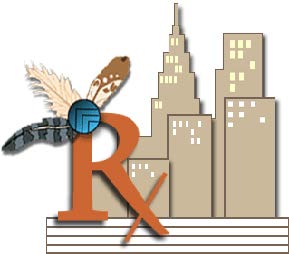Urban Indian Health Program

ISSUE
The IHS provides a comprehensive health service delivery system for approximately 2.2 million of the nation’s estimated 3.7 million American Indians and Alaska Natives. Approximately 70 percent of American Indians and Alaska Natives live in urban areas, with 25 percent of them residing in counties served by urban Indian health programs authorized and funded through Public Law 94-437, Title V.
BACKGROUND
Urban Indians not only share the same health problems as the general Indian population, their health problems are exacerbated in terms of mental and physical hardships because of the lack of family and traditional cultural environments. Urban Indian youth are at greater risk for serious mental health and substance abuse problems, suicide, increased gang activity, teen pregnancy, abuse, and neglect. Recent studies of the urban Indian population document poor health status and reveal that lack of adequate health care services are a serious problem for most families. This is reflected in a 2004 report “The Health Status of Urban American Indians and Alaska Natives: An Analysis of Select Vital Records and Census Data Sources” by the Urban Indian Health Institute, a division of the Seattle Indian Health Board. The report, which was limited to the counties served by Title V funded urban Indian programs, demonstrated that although progress had been made toward better health among this population, substantial health disparities continue to exist when compared to the general population.
SITUATION
Section 3 of P.L. 94-437, the Indian Health Care Improvement Act, declares that “it is the policy of the Nation, in fulfillment of its special responsibilities and legal obligations to the American Indian people, to ensure the highest possible health status for Indians and urban Indians.” The IHS provides contracts and grants to 41 urban-centered, nonprofit urban Indian organizations providing health care services at 59 locations throughout the United States. The programs define their scopes of services based upon the documented and unmet needs of the urban Indian communities they serve. The 41 programs engage in a variety of culturally appropriate activities to increase access to health services for urban Indians. These services range from the provision of outreach and referral services to the delivery of comprehensive ambulatory health care. Title V funds are but one source of funding for urban Indian health programs; most obtain supplemental resources from other federal, state, local, and private sources.
OPTIONS/PLANS
Since January 2006, the IHS has implemented HHS priorities directed at ensuring accountability and provision of high quality health services for the urban Indian population served by the IHS. Based on special provisions for Indians in the Affordable Care Act (ACA) and the Indian Health Care Improvement Act, the IHS is strategically planning for the expansion of health care coverage and quality services for the underinsured and underserved urban Indian population. The primary area of focus involves aligning with the ACA Health Insurance Marketplace to increase the number of urban Indians served, enhance revenues, and improve quality of care and customer service. This includes the development of new approaches and the refining of proven process for coordinated care services, supports, and networks as valued and essential services.
ADDITIONAL INFORMATION
For referral to the appropriate spokesperson, contact the IHS Public Affairs Staff at 301-443-3593.
October 2018
Download this Fact Sheet [PDF – 84 KB]


